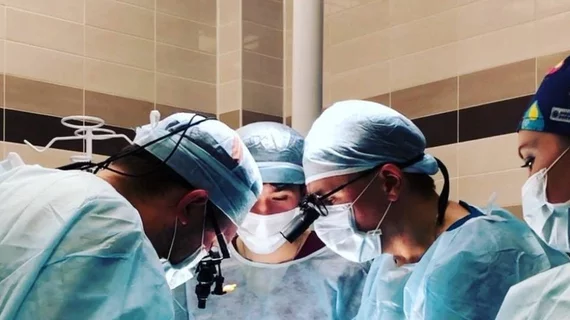Testing underway for biodegradable CV implants
Researchers at Kazan Federal University in Russia are in the process of testing biodegradable plant-based implants that might one day replace artificial prostheses, eliminating the need for repeat surgeries as a patient’s vasculature evolves.
Surgeon Vyacheslav Averyanov, the project’s head, has been working with Alloplant technology for some time and has successfully tested the approach in rats, according to a release. His team’s current tech is based on potato and corn materials that act as “food” for tissue replaced by prostheses and are absorbed into the patient’s own tissue over time.
Averyanov said the work, initiated seven years ago by surgeon Leonid Mirolyubov, will likely benefit young patients the most. Mirolyubov performed the world’s first prosthetics procedure with Alloplant back in 2008.
“A kid grows up, but the prosthesis cannot grow up with her,” Averyanov said in the release. “She needs another surgery. And that’s what stimulated me to tackle this problem.”
To date, testing with the potato- and corn-based technology has yielded “promising” results in more than a dozen lab animals, he said. Ultimately, the researchers would like their biodegradable alternative to replace existing artificial prostheses in patients with sclerosis, aneurysms and a host of blood vessel pathologies.
“This is all the more important for our little patients who become hostages of repeated surgical procedures because artificial prosthetics are not capable of natural growth,” Daniyar Khaziakhmetov, head of cardiology at the university, said.
Current testing is supported by Kazan Federal University, Republican Clinical Hospital, Kazan State Medical University, the Liniya Zhizni Foundation, Ministry of Health of Tatarstan and the University Clinic.

